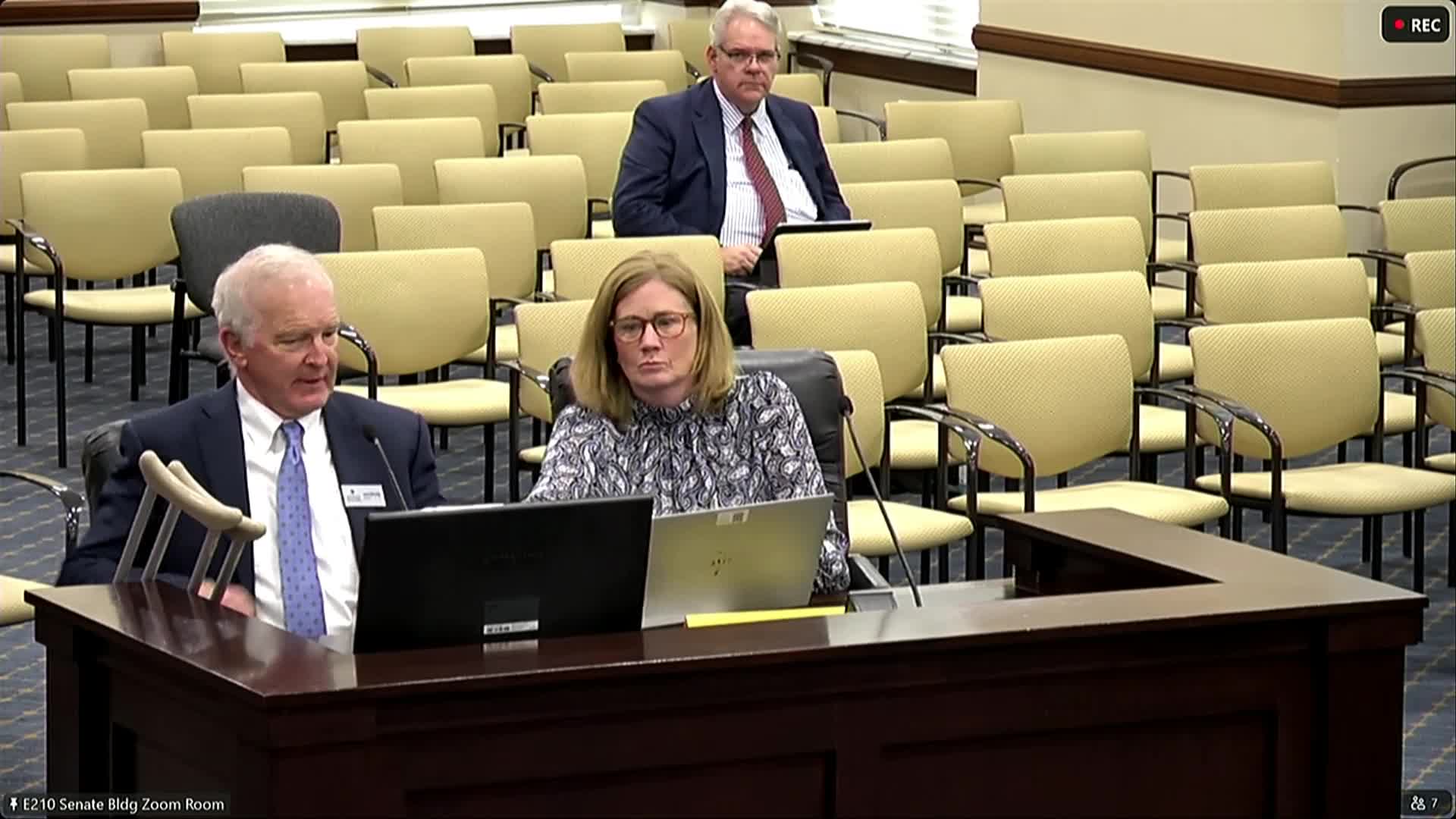Study group backs keeping beneficiary advocacy office; bill would add reporting rules and 'slow the flow' authority
Get AI-powered insights, summaries, and transcripts
Subscribe
Summary
A legislative study group recommended keeping an independent beneficiary advocacy office for trust lands and adopted a statutory draft that adds accountability and reporting requirements for institutional beneficiaries, clarifies governance and gives the treasurer limited authority to temporarily reduce distributions under specified conditions.
An interim legislative study group convened after a 2024 audit recommended changes to the trust system has proposed preserving an independent beneficiary advocacy office, adding beneficiary reporting requirements and giving the state treasurer conditional authority to reduce distributions in exceptional cases.
Liz Mumford and Kim Christie from the Land Protection and Advocacy Office presented the study group’s results on Oct. 14. Mumford said the office was created by HB 404 in 2018 and is a small operation of "less than $700,000 and just 3 FTE." She described the office’s statutory purpose as advancing the rights and interests of trust beneficiaries and said the largest beneficiary is public education, which receives roughly 95% of trust distributions.
Why it matters: the 2024 audit identified two core issues: unclear expectations and accountability for institutional beneficiaries that receive trust distributions (distinct from public school distributions) and governance ambiguities for the advocacy office. The study group spent the last year assessing alternatives ranging from elimination of the office to moving its functions to other agencies and concluded an independent office is the best option to serve a complex trust with multiple beneficiaries.
Bill highlights presented by Mumford and Christie include:
- Beneficiary accountability: the draft statute places planning, reporting and accountability duties on institutional beneficiaries and assigns the advocacy office monitoring and review responsibilities.
- "Slow the flow" authority: the bill would authorize the treasurer, in consultation with a beneficiary, to reduce (temporarily) distributions under certain conditions where distributions are not being used effectively or are being carried forward without productive use.
- Governance and operational clarifications: the draft reorganizes statutory language, clarifies interactions among the treasurer, the advocacy council and the director, and makes technical changes to distribution initiation and administration.
Mumford said the changes align with the audit recommendations and were vetted by a study group that included beneficiaries, the treasurer’s office, SITLA, SITFO and trust law counsel. She stressed the proposed bill carries no fiscal note and requires no additional FTE; the office expects to implement the changes within its current budget by using technology and revised procedures.
Ending: study group chairs Senator Owens and Representative Burton (not present due to other committee commitments) sent a statement endorsing the independent office and thanking participants. Presenters asked the committee to consider the draft statutory changes as a vehicle to address the audit’s recommendations and to improve long‑term accountability across the trust system.
